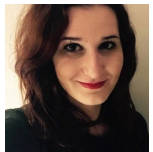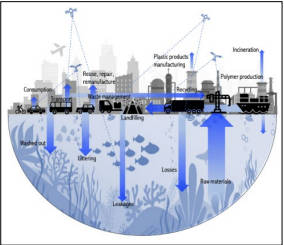ColloquiumThe Industrial Engineering at Politecnico di Milano (Italy) and the San Diego State University Human Dynamics in the Mobile Age Center 
Detecting Plastic Pollution along the US-Mexico Border: A Multi-level Monitoring ApproachAbstract:Plastic debris and its impacts on marine ecosystems have been largely investigated; however, the state of knowledge around the sources and pathways of plastic pollution in our oceans remains an open question. This research specifically addresses the use of integrated technologies to monitor and map plastic pollution at different scales, thus advancing the understanding of the principal entry points, means of release, and translocation mechanisms of plastic particles in Imperial Beach and surroundings, San Diego. The study will assess the contributions to marine and plastic pollution from a wide array of coastal activities located along the US-Mexico border and provide managerial implications for the containment of plastic releases
About the speaker: Carol Maione
Carol Maione is a natural scientist, currently pursuing her PhD in Industrial Engineering at Politecnico di Milano (Italy) and visiting scholar at the Dept. of Geography at SDSU and Metabolism of Cities Living Lab - Center for Human Dynamics in the Mobile Age. Her work is focused on (i) multi-level monitoring and dynamic modeling of plastic materials and pollution flows across the industrial and natural systems; (ii) role and relevance of technology (e.g., monitoring technology, recycling technology) in enhancing a circular economy for plastics; and (iii) impacts of anthropogenic pollution on coastal communities and marine-dependent activities. Carol's research interests include marine pollution and microplastics, material flow analysis, remote and proximity sensing, ocean and coastal management, underwater survey, and citizen science. Refer to the attached file for the details: Carol Maione's talk |




